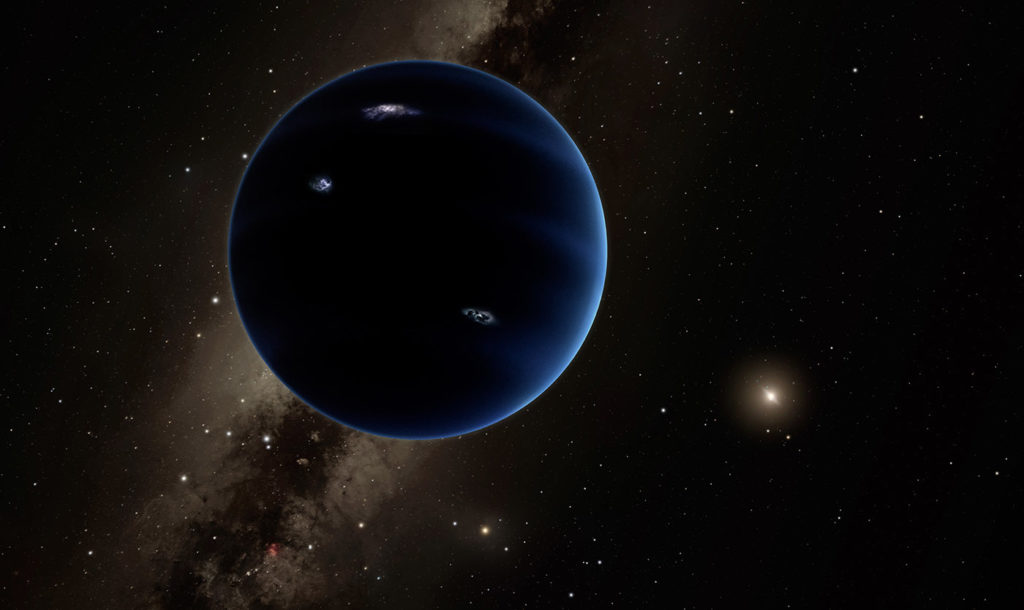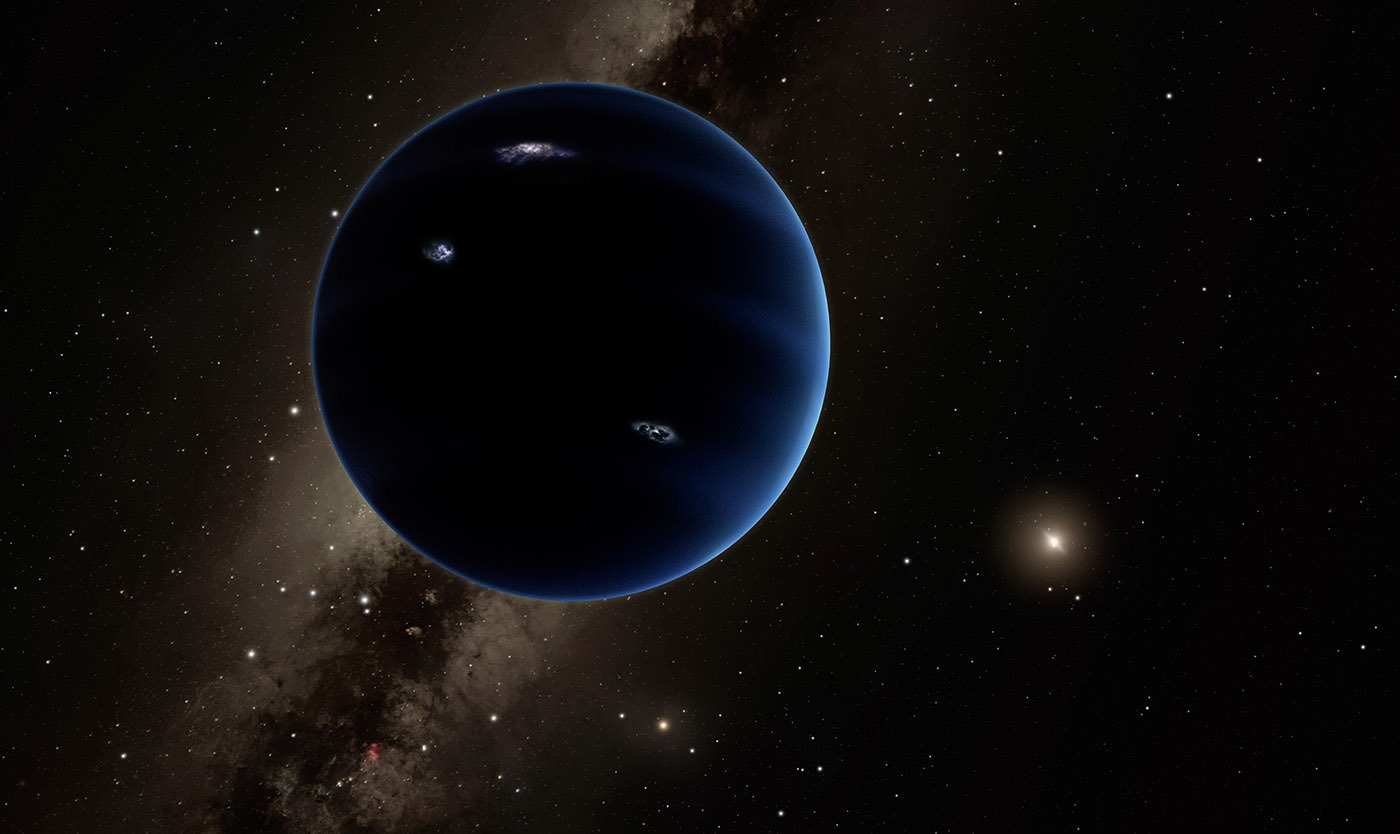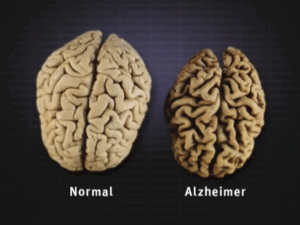Is there another planet in our solar system?
Mike Brown, the astronomer dubbed “the Pluto Killer” for his role in classifying Pluto as a dwarf planet, is now working to prove the existence of a hypothetical ninth planet in our solar system (1). This planet, known simply as “Planet Nine” or “Planet X,” is theorized to be a gaseous planet the size of Uranus or Neptune (2), six times as large as Earth (3). While initially hesitant to risk infamy from championing the hunt for a planet that does not exist, Brown is now confident in his search (3). “It is inconceivable to me that there is not a Planet Nine out there,” Brown asserted in an interview with PBS. “There are just too many things that were previously unexplained that Planet Nine naturally explains” (4).

Brown’s argument, which he and Caltech colleague Konstantin Batygin first announced in 2016, rests on the unusual orbits of several dwarf planets (8). Brown and Batygin noticed that six trans-Neptunian objects, all of which were wider than 100 kilometers (9) and found in the Kuiper Belt on the outer region of the solar system, had inexplicably similar orbits. The objects not only moved in the same direction, but also orbited on the same plane in space, tilted six degrees away from the sun (4). Because the chances of this occurring randomly are 1 in 15,000 (8), Batygin and Brown believe that a large planet’s gravitational pull must be affecting the orbit of these objects in such a way that their orbits are “anti-aligned” with that of the planet: Planet Nine (5).

Two other scientists have a different theory. While Brown and Batygin sift through old data in search of evidence for Planet Nine (3), Jakub Scholtz and James Unwin contend that the presumed gravitational effects of Planet Nine could in fact be the work of a baseball-sized black hole (6). In order to support their claim, Scholtz and Unwin are examining data on gamma-ray flashes from the Fermi Gamma-Ray Space Telescope. They hope that by examining the patterns made by these gamma-ray flares, they can prove that they were created by contact between dark antimatter particles and the dark matter that would surround this black hole for one billion kilometers on every side (7). If Scholtz and Unwin are correct, the discovery of such a black hole would be doubly significant in that it would be the first time that primordial black holes, a type of black hole created shortly after the Big Bang by density fluctuations rather than the collapse of a star, were observed directly (6).It has yet to be discovered whether the cause of these atypical orbits is a planet, a black hole, or simply a miscalculation. “The possibility of a new planet is certainly an exciting one for me as a planetary scientist and for all of us,” explained Jim Green, the director of NASA’s Planetary Science Division. “This is not, however, the detection or discovery of a new planet. It’s too early to say with certainty there’s a so-called Planet X. What we’re seeing is an early prediction based on modeling from limited observations. It’s the start of a process that could lead to an exciting result” (2).
– Dalia Dainora Cohen
References
- Feltman, R. (2016, January 20). Q&A: The ‘Pluto Killer’ who thinks he’s found the true ninth planet. The Washington Post. Retrieved from https://www.washingtonpost.com/news/speaking-of-science/wp/2016/01/20/qa-the-pluto-killer-who-thinks-hes-found-the-true-ninth-planet/
- In Depth: Hypothetical Planet X. (2019, December 19). Retrieved April 10, 2020, from https://solarsystem.nasa.gov/planets/hypothetical-planet-x/in-depth/
- TED. (2019, December 20). Mike Brown: The search for our solar system’s ninth planet [Video file]. Retrieved from https://www.youtube.com/watch?v=2UZKME9WP9M
- [NOVA PBS Official]. (2019, June 27). The Evidence for Planet Nine’s Existence | NOVA | PBS [Video file]. Retrieved from https://www.youtube.com/watch?v=hiJxgfBVGr8
- TED. (2018, May 31). Masao Sako: The Search for Planet Nine [Video file]. Retrieved from https://www.youtube.com/watch?v=wHaUmXk1qs4
- Chow, D. (2019, October 2). Our solar system’s mysterious ‘Planet 9’ may actually be a tiny, ancient black hole. National Broadcasting Company. Retrieved from https://www.nbcnews.com/mach/science/our-solar-system-s-mysterious-planet-9-may-actually-be-ncna1061516
- Perkins, S. (2019, September 27). ‘Planet Nine’ may actually be a black hole. Science. https://www.sciencemag.org/news/2019/09/planet-nine-may-actually-be-black-hole
- Hand, E. (2016, January 20). Astronomers say a Neptune-sized planet lurks beyond Pluto. Science. https://www.sciencemag.org/news/2016/01/astronomers-say-neptune-sized-planet-lurks-beyond-pluto
- Small Bodies: Profile. (n.d.). Retrieved April 24, 2020, from https://pds.jpl.nasa.gov/planets/special/smbod.htm
Images







Be First to Comment